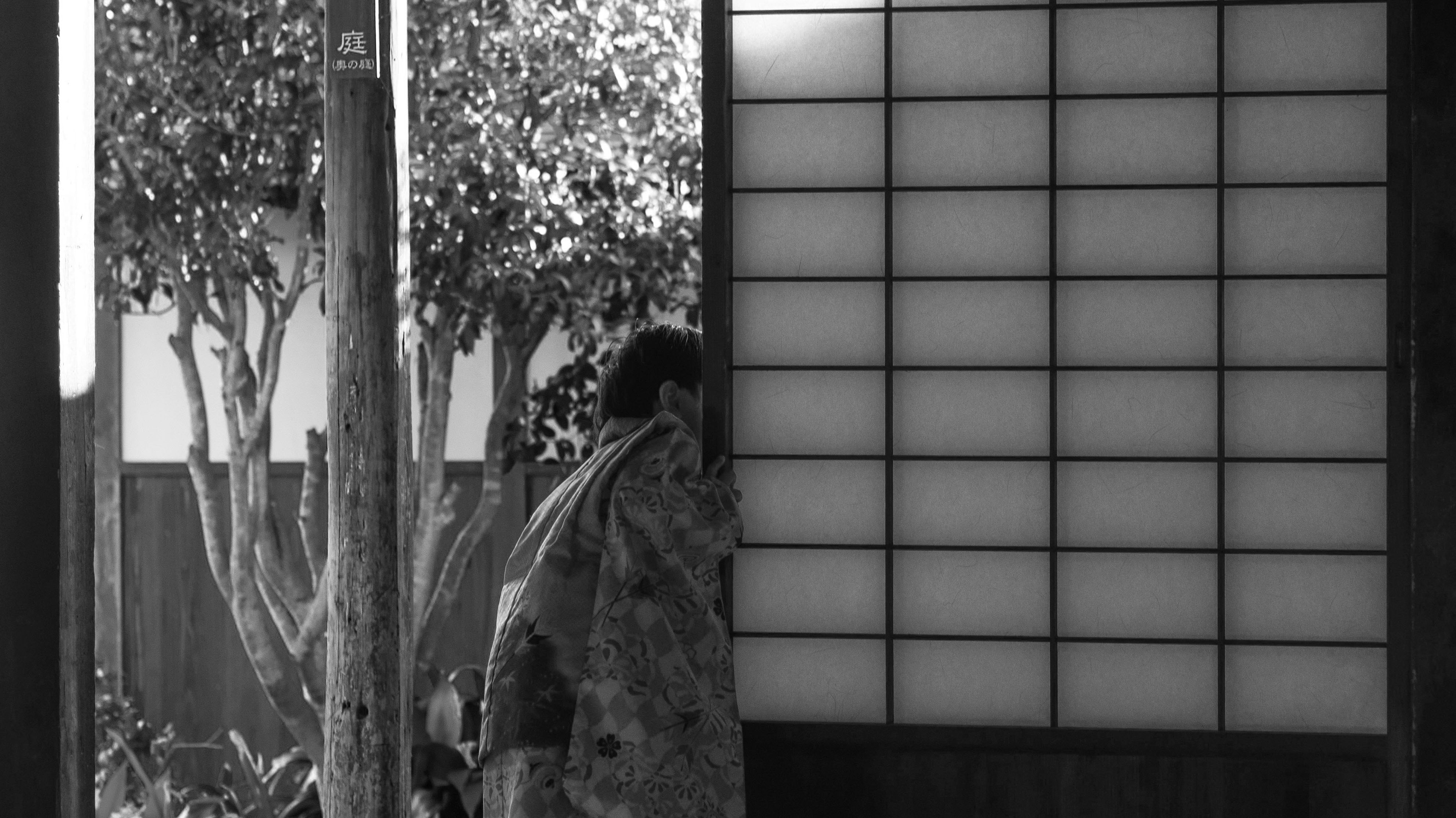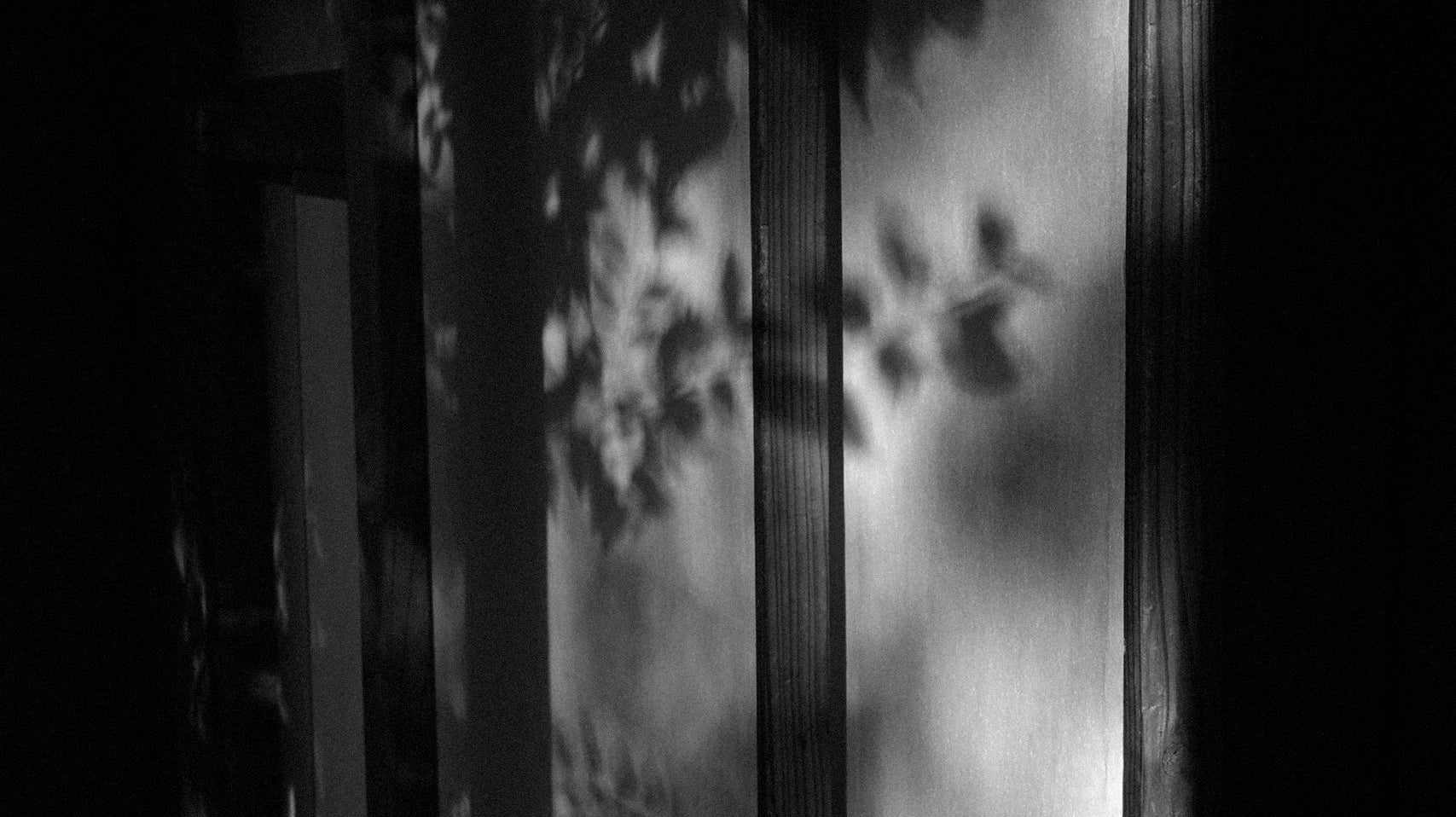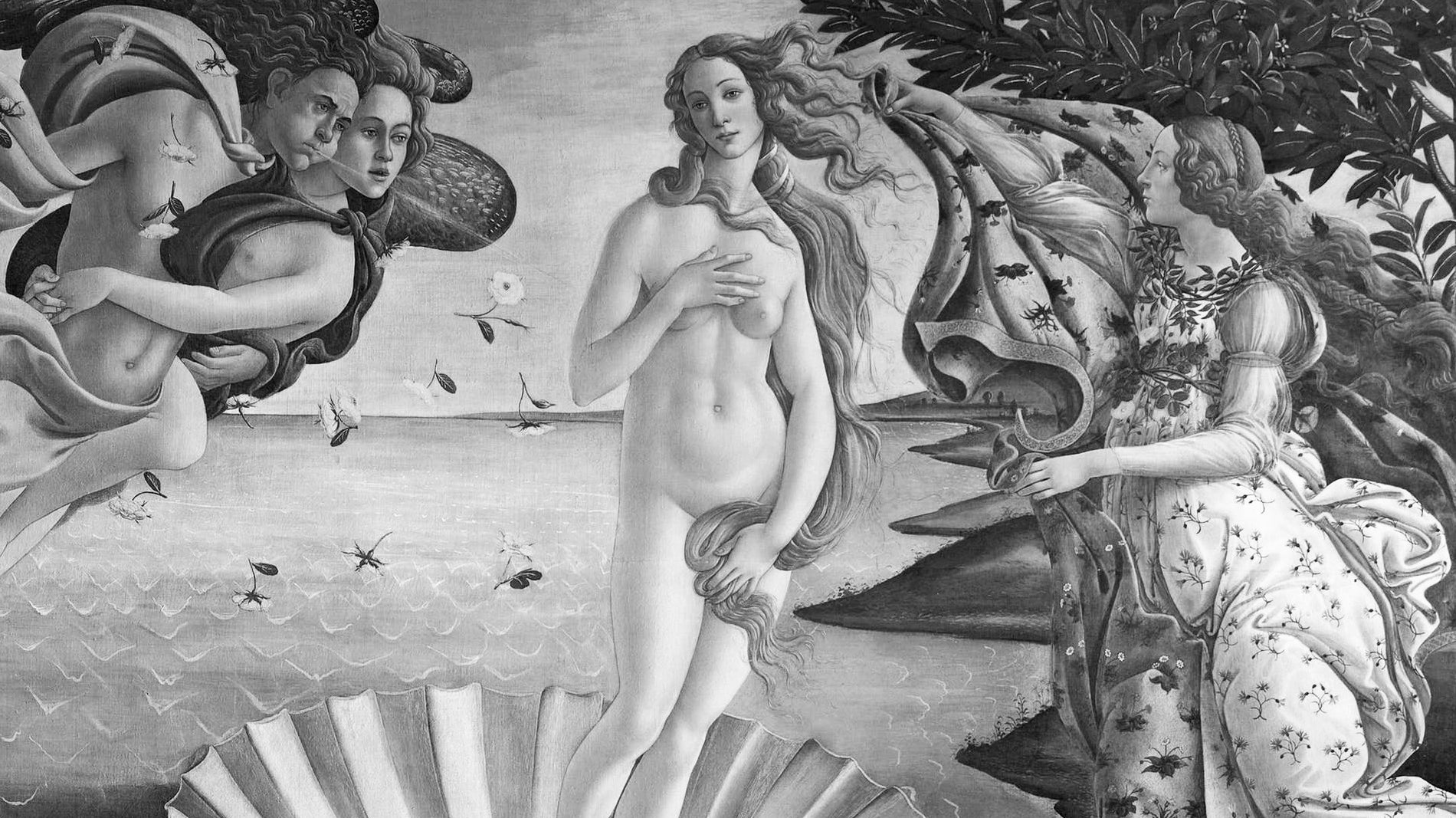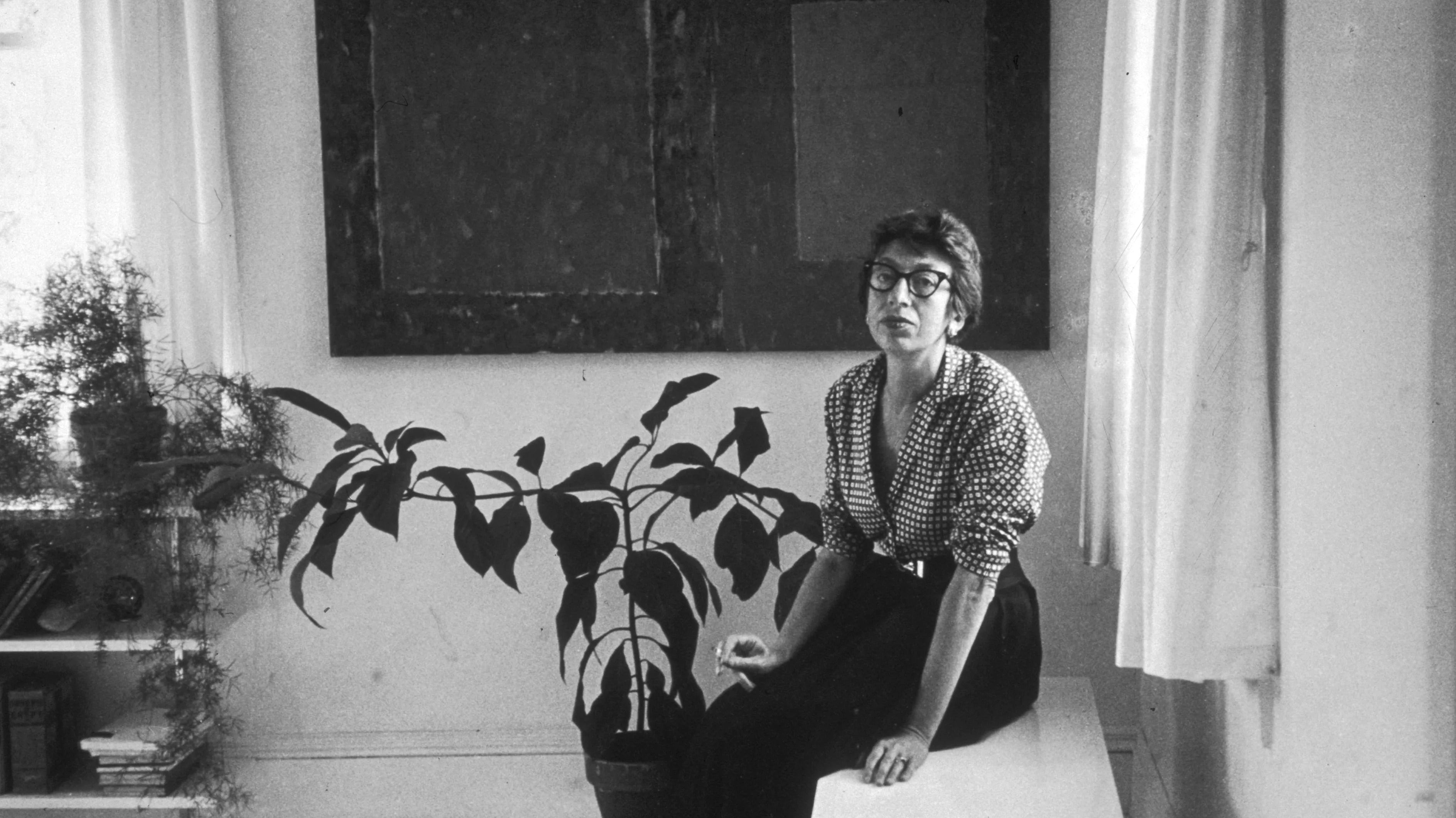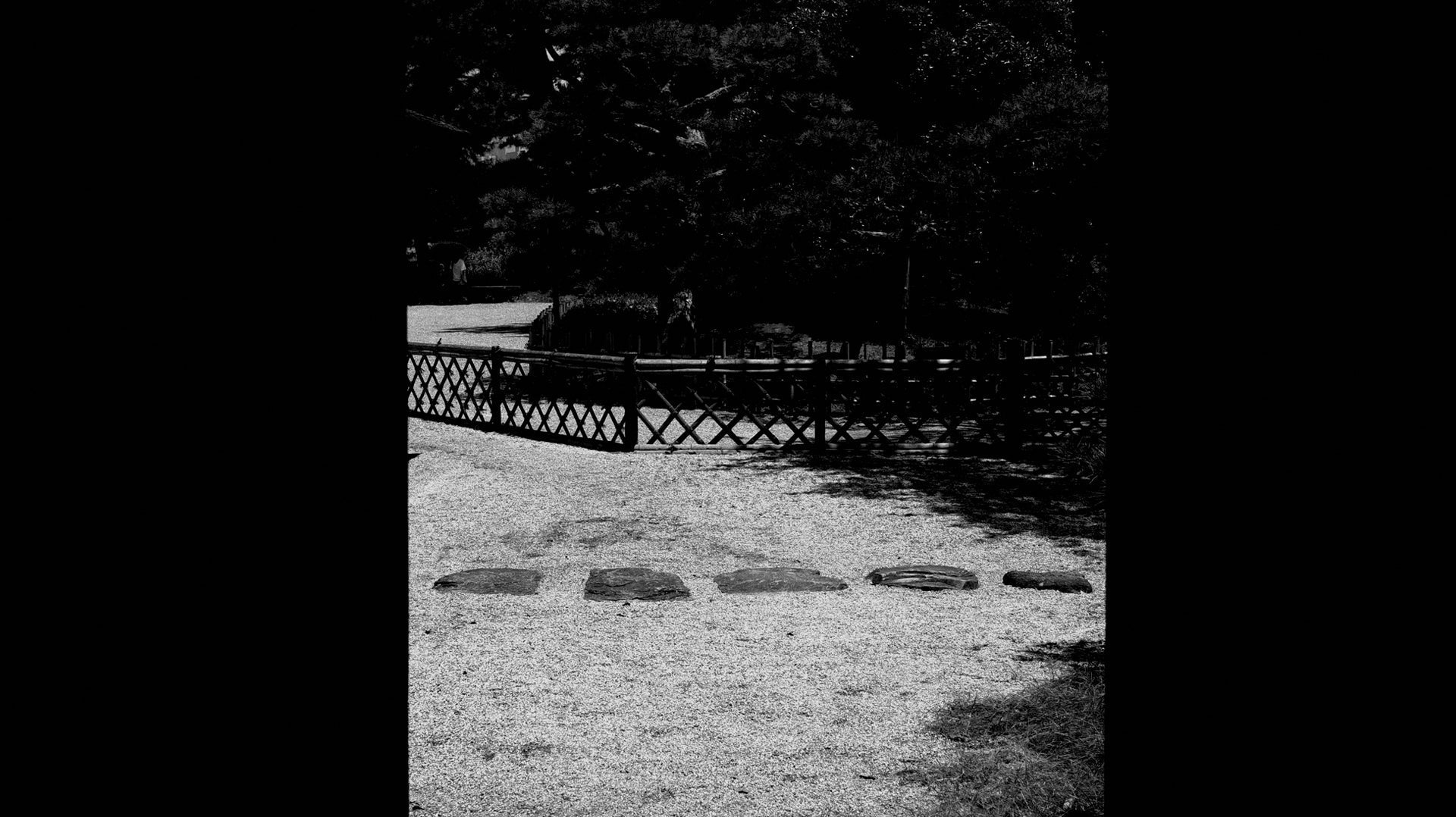 Noguchi working on the plaster original of "Mu," 1950
Noguchi working on the plaster original of "Mu," 1950(Isamu Noguchi: Everything is Sculpture - dans le gris)
"Everything is sculpture. Any material, any idea without hindrance born into space, I consider sculpture."— Isamu Noguchi
Isamu Noguchi (1904–1988) was born in Los Angeles in 1904. He was a Japanese-American artist, sculptor-designer, and landscape architect with an artistic career spanning six decades, beginning in the 1920s. Noguchi's biracial and bicultural upbringing made him feel as though he were living "in between" the East and West; the balancing of this tension became the subject of his art. Throughout his lifetime of artistic experimentation, Isamu Noguchi explored various forms of art—creating sculptures, designing gardens, crafting furniture and lighting, working with ceramics, planning buildings and landscapes, and even designing sets. Noguchi's art is a blend of subtlety and boldness, merging traditional and modern elements. His work has set a new standard for the integration of different artistic forms. Shaped by his travels and experiences in various cultures, Noguchi's natural and instinctive sensibilities have positioned him as a significant figure in the development of unique, abstract shapes in American sculpture during the 20th century.
In 1926, Isamu Noguchi attended an exhibition in New York featuring the work of Constantin Brancusi, an experience that profoundly altered his artistic direction. He used to say, "Brancusi made me realize that what I had learned previously—the quick ways of doing things—was all wrong... It is not the quick solutions. It is not something you learn and apply. After all, it is a search you have to enter into yourself." Determined to pursue a deeper understanding of modernism and abstraction, Noguchi, with the support of a John Simon Guggenheim Fellowship, traveled to Paris in 1927 and worked in Brancusi's studio.
During this time, Noguchi developed friendships with prominent figures such as Alexander Calder, Stuart Davis, R. Buckminster Fuller, Martha Graham, and Jules Pascin. Inspired by the older artist’s forms and philosophy, Noguchi embraced modernism and abstraction, infusing his highly finished pieces with a lyrical and emotionally expressive quality and an aura of mystery. It was also during this period that Noguchi gained experience in stone sculpture.
(Isamu Noguchi: Everything is Sculpture - dans le gris)
Art should "disappear" or Be as one with its surroundings.
(Isamu Noguchi: Everything is Sculpture - dans le gris)
Isamu Noguchi thought that limiting himself to a particular style might make him an expert in that specific viewpoint or school, but he did not wish to belong to any school. Noguchi once said, "I am always learning, always discovering." As an artist, Noguchi used any medium he could get his hands on—stone, metal, wood, clay, bone, paper, or a mixture of any or all—carving, casting, cutting, pounding, chiseling, or dynamiting away as each form took shape. Noguchi believed the sculptor's task was to shape space, to give it order and meaning, and that art should "disappear" or be as one with its surroundings.
(Isamu Noguchi: Everything is Sculpture - dans le gris)
Isamu Noguchi's Drawing
(Isamu Noguchi: Everything is Sculpture - dans le gris)
According to The Noguchi Museum, reflecting on his formative years as an artist in 1973, Isamu Noguchi candidly remarked, "I seem to have lost my facility, but I was facile at drawing. I could do anything. It was easy for me." This confidence in his drawing skills is substantiated by Noguchi’s Early Drawings, each revealing a unique facet of his journey to establish a distinctive artistic identity following his apprenticeship with Brancusi. During this period, Noguchi used drawing not only to keep his eye sharp for portrait bust commissions that sustained him financially but also as a tool for delving into the realm of abstraction. Much like his busts, these drawings showcase his extraordinary adaptability to both sitter and circumstance.
(Isamu Noguchi: Everything is Sculpture - dans le gris)

Paris Abstraction, 1928
(Isamu Noguchi: Everything is Sculpture - dans le gris)

Paris Abstraction, 1928
(Isamu Noguchi: Everything is Sculpture - dans le gris)

Paris Abstraction, 1928
(Isamu Noguchi: Everything is Sculpture - dans le gris)
Peking Brush Drawing, 1930
(Isamu Noguchi: Everything is Sculpture - dans le gris)
Isamu Noguchi's Sculpture
(Isamu Noguchi: Everything is Sculpture - dans le gris)
It can't be denied that Isamu Noguchi's contributions to sculpture have impacted art history in the 20th century. His sculptures are characterized by abstract and organic forms, showcasing not only diverse shapes but also materials. Noguchi frequently worked with various materials, including stone, wood, metal, and clay.
(Isamu Noguchi: Everything is Sculpture - dans le gris)
 Lunar Infant, 1944
Lunar Infant, 1944
(Isamu Noguchi: Everything is Sculpture - dans le gris)

Floating Lunar, 1945
(Isamu Noguchi: Everything is Sculpture - dans le gris)

Humpty Dumpty, 1946
(Isamu Noguchi: Everything is Sculpture - dans le gris)

Bird’s Nest, 1947
(Isamu Noguchi: Everything is Sculpture - dans le gris)

Stone of Spiritual Understanding, 1962
(Isamu Noguchi: Everything is Sculpture - dans le gris)

Magritte’s Stone, 1982-1983
(Isamu Noguchi: Everything is Sculpture - dans le gris)

Kyoko-san, 1984
(Isamu Noguchi: Everything is Sculpture - dans le gris)
Continue Reading:
• Pina Bausch: Dance, Dance, Otherwise We are Lost
• Robert Mapplethorpe's Flower Photography
• Issey Miyake: 8 Things You Should Know About the Japanese Fashion Legend
(Isamu Noguchi: Everything is Sculpture - dans le gris)
About Us
Dans Le Gris is a brand that started with everyday jewelry; each handmade piece is designed and crafted in Taiwan. We deeply value every detail, dedicating ourselves to creating enduring pieces through collaboration with experienced craftsmen.
(Isamu Noguchi: Everything is Sculpture - dans le gris)
In our journal, we provide irregular updates featuring articles about art, culture, and design. We aspire to furnish our readers with profound insights and inspiration across a broad array of creative subjects. From the daily inspirations found in art and design to the timeless beauty of traditional craftsmanship and philosophy, our curated content encompasses diverse aspects of life.


